Meta's AI Benchmark Win Comes With an Asterisk
Meta claimed a major victory in AI last weekend when its new Llama 4 Maverick model grabbed second place in industry rankings. But there's a catch.
AI experts think artificial intelligence will transform society for the better. The public isn't buying it. A new Pew Research survey reveals a stark divide between AI specialists and average Americans.

Good Morning from San Francisco,
The robots-will-save-us crowd faces a reality check. A fresh Pew survey exposes a gulf between AI experts and regular folks. While specialists paint a rosy future, only 17% of Americans share their techno-optimism. 🤷♀️
Even the experts bicker among themselves. Male specialists trumpet AI's potential, while female experts pump the brakes. Corporate types see responsible development ahead. Academia isn't convinced. 🎓
Meanwhile, Midjourney storms back into the AI art arena. Their new V7 model promises prettier pictures and fewer mangled hands. The twist? It wants to learn your taste first. Rate 200 images, then create. The price tag might sting, but at least those cursed AI fingers won't haunt your dreams anymore. 🎨
Stay curious,
Marcus Schuler
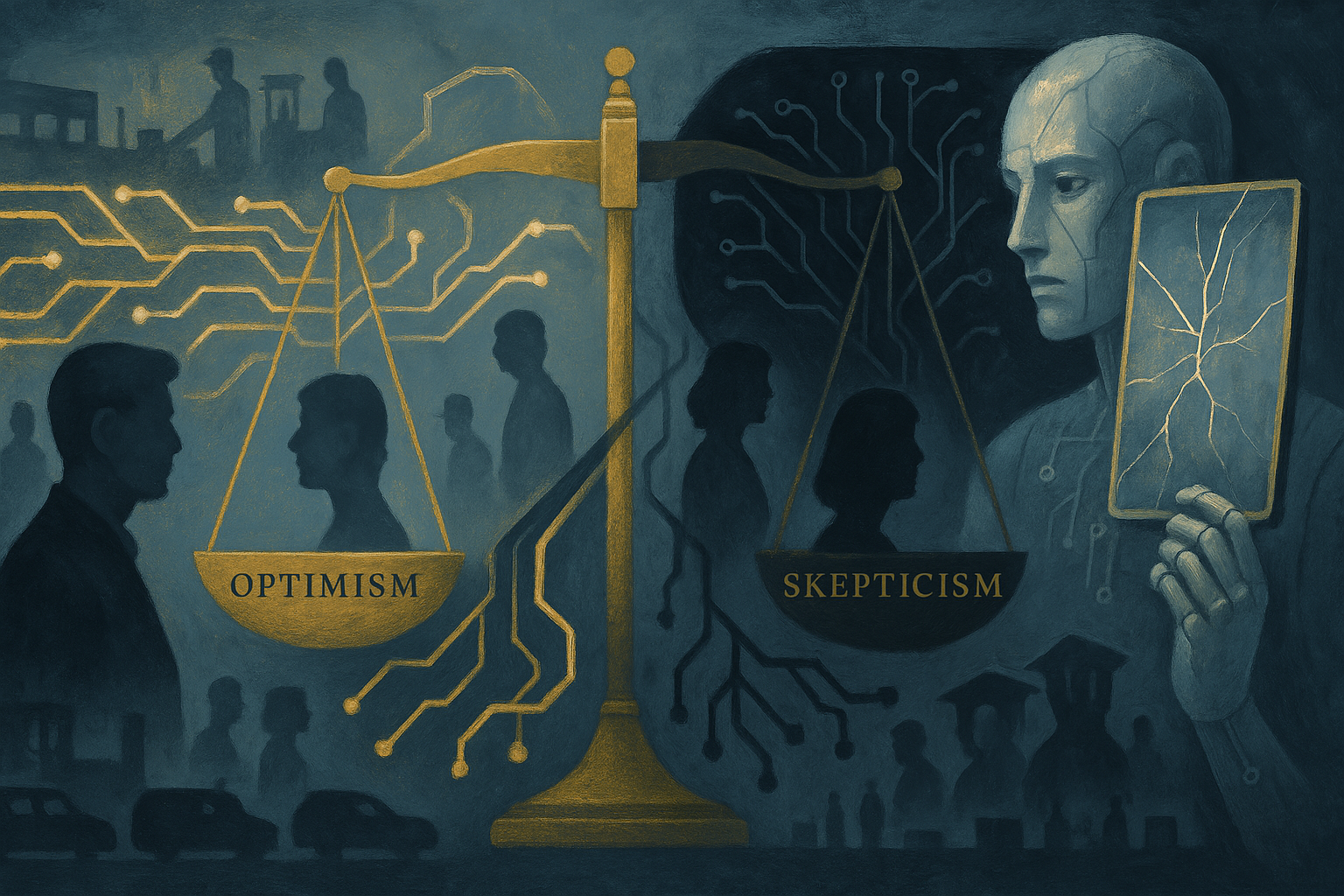
AI experts think artificial intelligence will transform society for the better. The public isn't buying it.
A new Pew Research survey reveals a stark divide between AI specialists and average Americans. While 56% of experts believe AI will positively impact the U.S. over the next 20 years, only 17% of the public shares their optimism. The gulf widens on jobs - 73% of experts see AI improving how people work, but just 23% of Americans agree.
Gender splits the experts too. Male specialists bubble with enthusiasm, with 63% predicting positive impacts. Female experts strike a more cautious tone, with only 36% forecasting sunny days ahead. It seems even the robot whisperers can't agree on our automated future.
The academic-industry divide adds another wrinkle. Six in ten university experts doubt companies will develop AI responsibly. Their corporate counterparts are more trusting, with only 39% expressing skepticism. Perhaps proximity to profit centers breeds optimism.
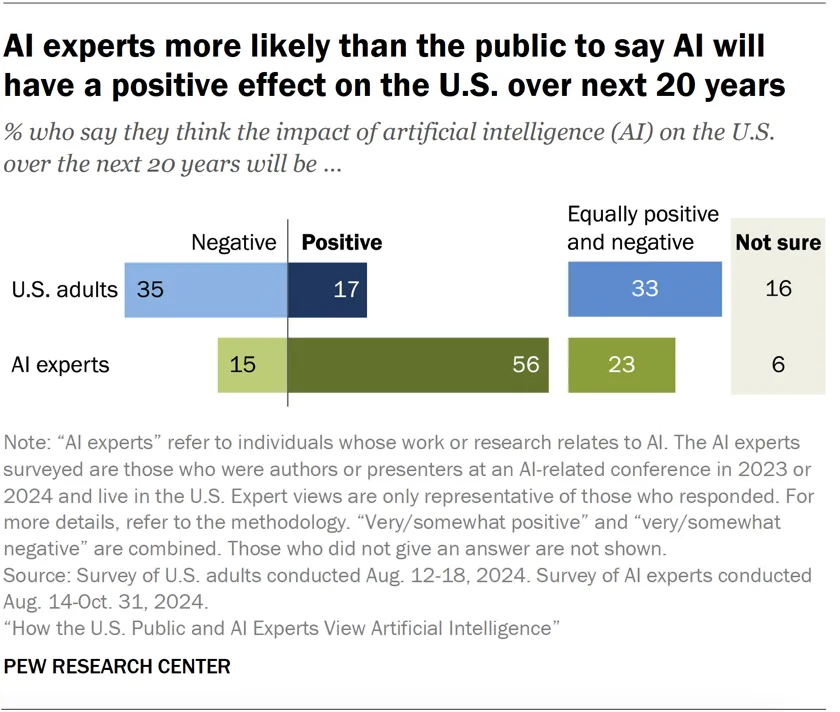
Both groups share some common ground. They worry about AI-powered misinformation and data misuse. About two-thirds of experts and the public fear people will get bad information from AI. They also agree that government oversight looks shaky - roughly 60% think regulators won't do enough to control AI's spread.
Some jobs look particularly vulnerable. Both experts and the public expect AI to shrink opportunities for cashiers, journalists, and factory workers. But they split on transportation - 62% of experts think truck driving jobs will decline, while only 33% of the public agrees. The experts might know something the rest of us don't.
Why this matters:
Read on, my dear:
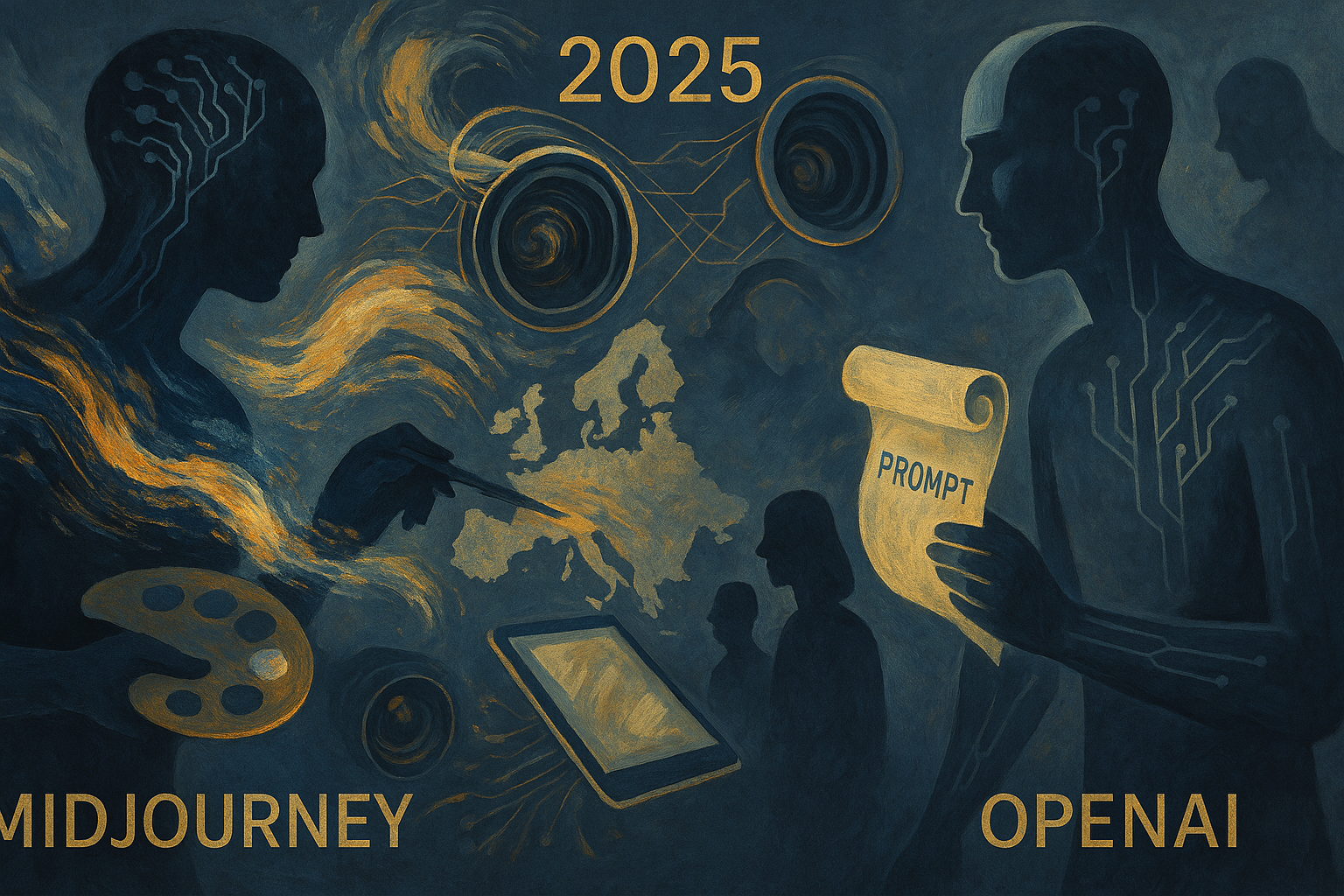
Midjourney just fired its first shot in the 2024 AI image wars. The timing isn't subtle - it comes just days after OpenAI's viral Ghibli-style generator in ChatGPT.
The new V7 model marks Midjourney's first major update in nearly a year. It brings faster rendering, sharper details, and a curious twist: it learns your taste. Users must rate 200 images to create a "personalization profile" before they can use V7.
CEO David Holz calls it a "totally different architecture." The model excels at handling text prompts and crafting textures. It also fixes a common AI art complaint - those creepy, mangled hands that haunt earlier models.
Speed comes at a price. The "Turbo" mode costs twice as much as V6. But there's a workaround: a new "Draft Mode" renders images 10 times faster at half the cost. Think of it as a sketch pad for ideas.
Some features still run on V6, including upscaling and retexturing. Holz promises updates within two months. The company faces lawsuits over training data, but that hasn't slowed its progress. With no outside funding, Midjourney reportedly earned $200 million in 2023.
Why this matters:
Read on, my dear:
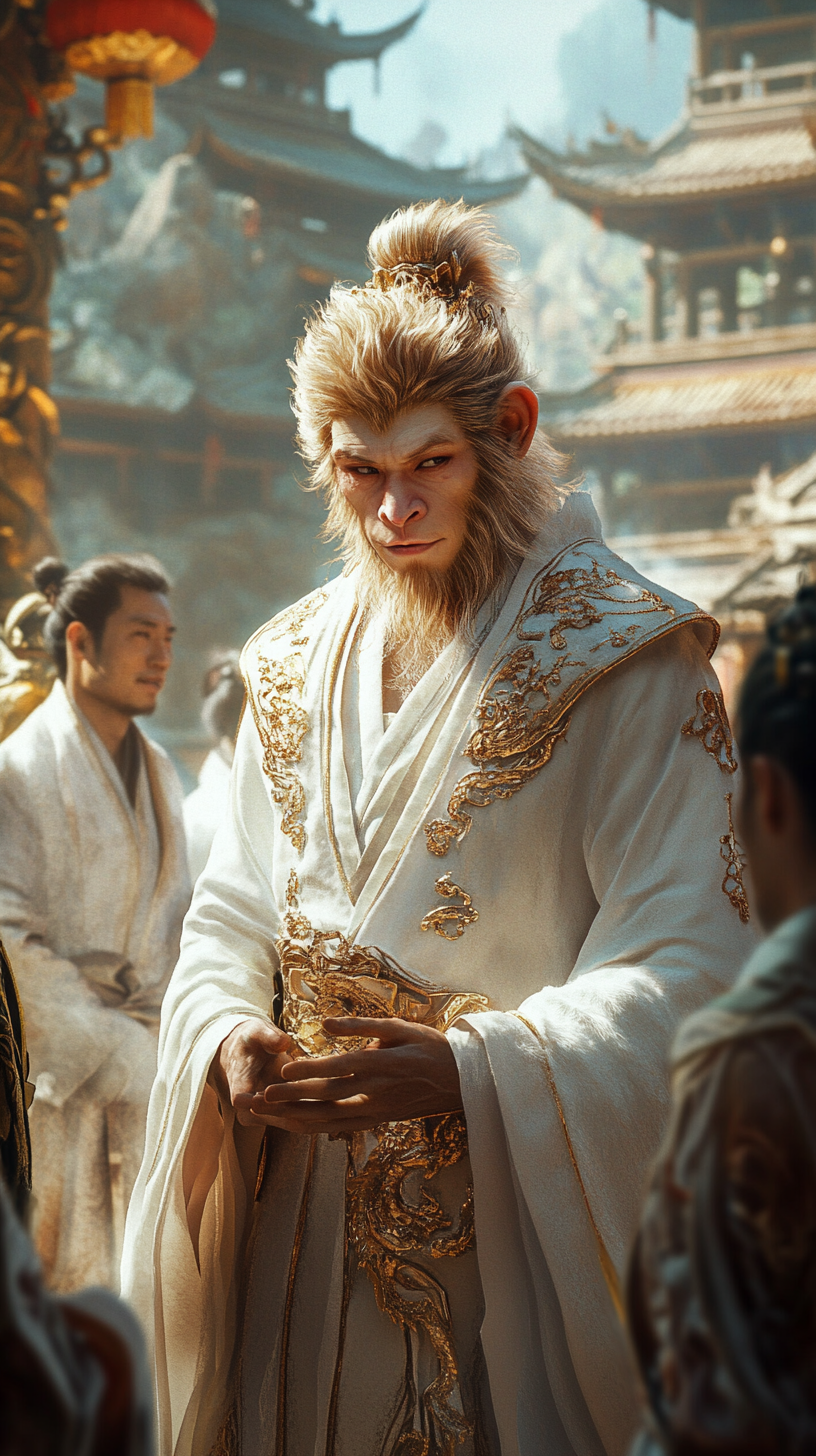
Prompt:
The Monkey King, Golden hair, handsome face, wearing a white Taoist robe, surrounded by a group of people dressed in white, talking happily, standing on the square with an ancient palace in the background. Chinese mythology, Ancient Chin, highly realistic, UhD, 8K, HDR, high definition, high resolution, high detail, high quality.
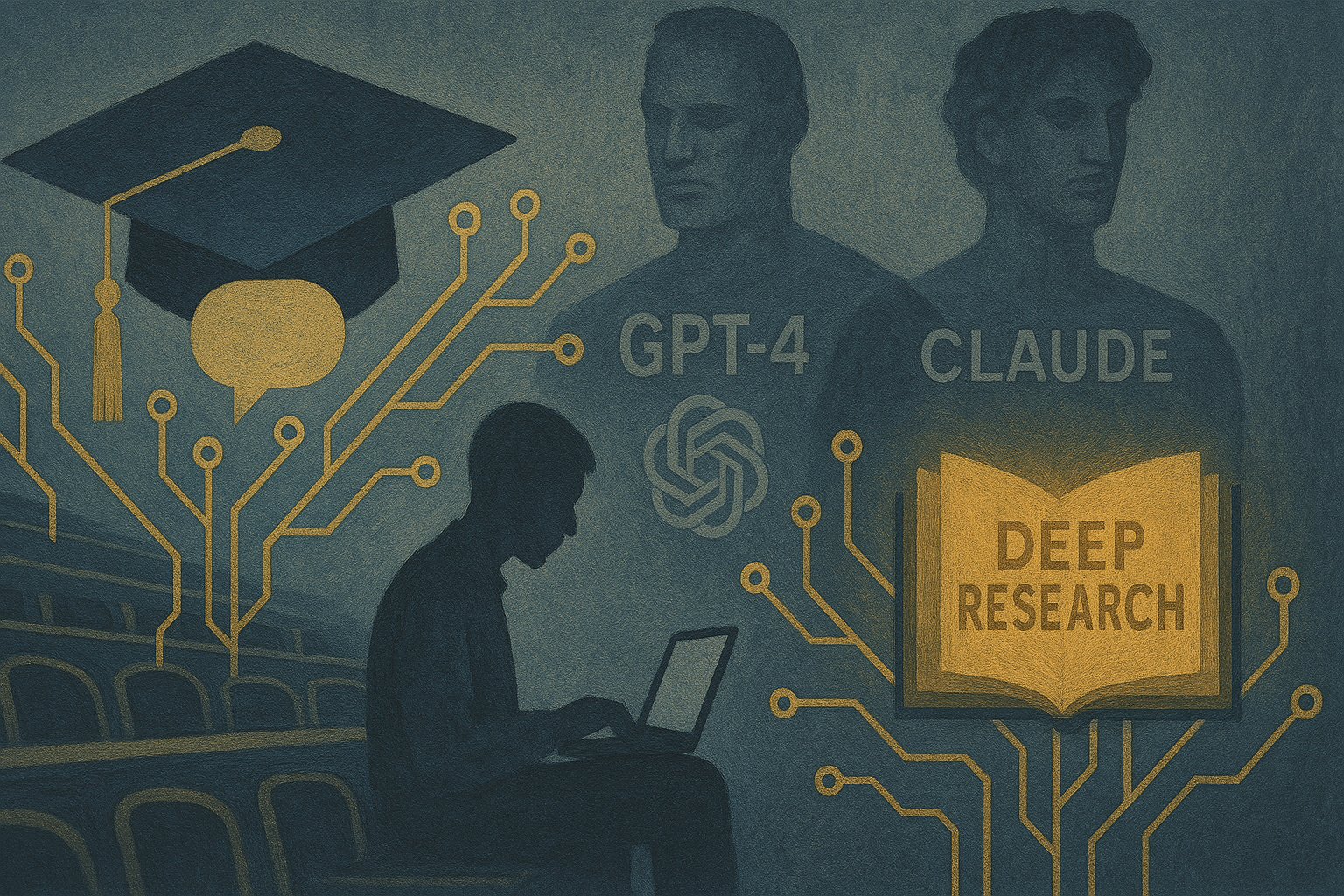
OpenAI just made a bold play for the future of education. The company is giving millions of U.S. and Canadian college students free access to ChatGPT Plus through May. The timing isn't random - finals are coming.
The move puts OpenAI's premium features in student hands right when they need them most. ChatGPT Plus normally costs $20 per month. It includes GPT-4 (OpenAI's smartest AI), image creation, voice chat, and research tools that dig deep into academic papers.
OpenAI isn't alone in targeting students. Just a day earlier, Anthropic launched "Claude for Education" with a twist - it asks Socratic questions instead of giving answers. The company partnered with schools like Northeastern University to provide campus-wide access.
This feels like the 1990s browser wars, when Netscape and Internet Explorer fought for users by giving away software. Today's prize? Students who might bring their favorite AI tools into future workplaces.
The stakes are huge. Over one-third of young adults already use ChatGPT, with a quarter of queries tied to schoolwork. Market analysts expect educational tech to hit $80.5 billion by 2030.
Universities are scrambling to adapt. Some ban AI outright. Others redesign assignments to focus on uniquely human skills like research design and ethical reasoning. Most land somewhere in between, treating AI as a tool that requires its own expertise.
Why this matters:
Read on, my dear:
I'm seeking comprehensive feedback on my [proposal/project/article] as if you were an experienced [investor/business owner/magazine editor] in this field.
Feel free to comment on aspects like [relevance to target audience/market viability/narrative structure] and any missed opportunities you notice.
What would make you [invest in/implement/publish] this, and what might hold you back?
Intel wants to hand TSMC the keys to its struggling factories. The world's top chipmaker might take a 20% stake in Intel's manufacturing business. The deal could save Intel from more pain. The company lost $18.8 billion in 2024 - its first loss since leg warmers were in fashion. Its stock dropped 60% while the market partied. Now the White House is playing matchmaker, pushing both sides toward the altar.
Google wants to catch OpenAI. But it's leaving safety transparency in the dust. The tech giant launched two AI models in three months - but hasn't published safety reports for either. That's awkward for a company that invented these reports back in 2019 and promised governments it would keep releasing them. Google calls this "experimental." Critics call it convenient amnesia.
Amazon wants to be your personal shopper. Its new AI will even punch in your credit card details. The company's "Buy for Me" button lets you buy stuff from other websites without leaving the Amazon app. A blend of Amazon's Nova AI and Anthropic's Claude handles the boring parts - like typing your address for the thousandth time. Just don't expect Amazon's customer service if something goes wrong.
Mark Zuckerberg sprinted to the White House this week. His mission? Charm Trump before the FTC tries to break up his empire. Meta faces a landmark antitrust trial on April 14 that could force it to unwind the Instagram and WhatsApp deals. Trump's new FTC chief Andrew Ferguson shows no signs of backing down, despite Silicon Valley's hopes that Trump 2.0 might play nicer with Big Tech.
Nine major green projects worth $8 billion have stalled since January. VW dialed back its Tennessee EV plant. Battery makers fled Michigan. Meanwhile, China and Europe race ahead in the climate tech gold rush, leaving America to perfect the art of shooting itself in the foot.
Microsoft turns 50 this week. But instead of champagne, it's swallowing market losses. The tech giant's stock just logged its worst quarter in three years as cloud growth sputters and Trump's tariffs bite. Even Bill Gates showing up to the birthday party couldn't stop shares from dropping another 2.4% Thursday.
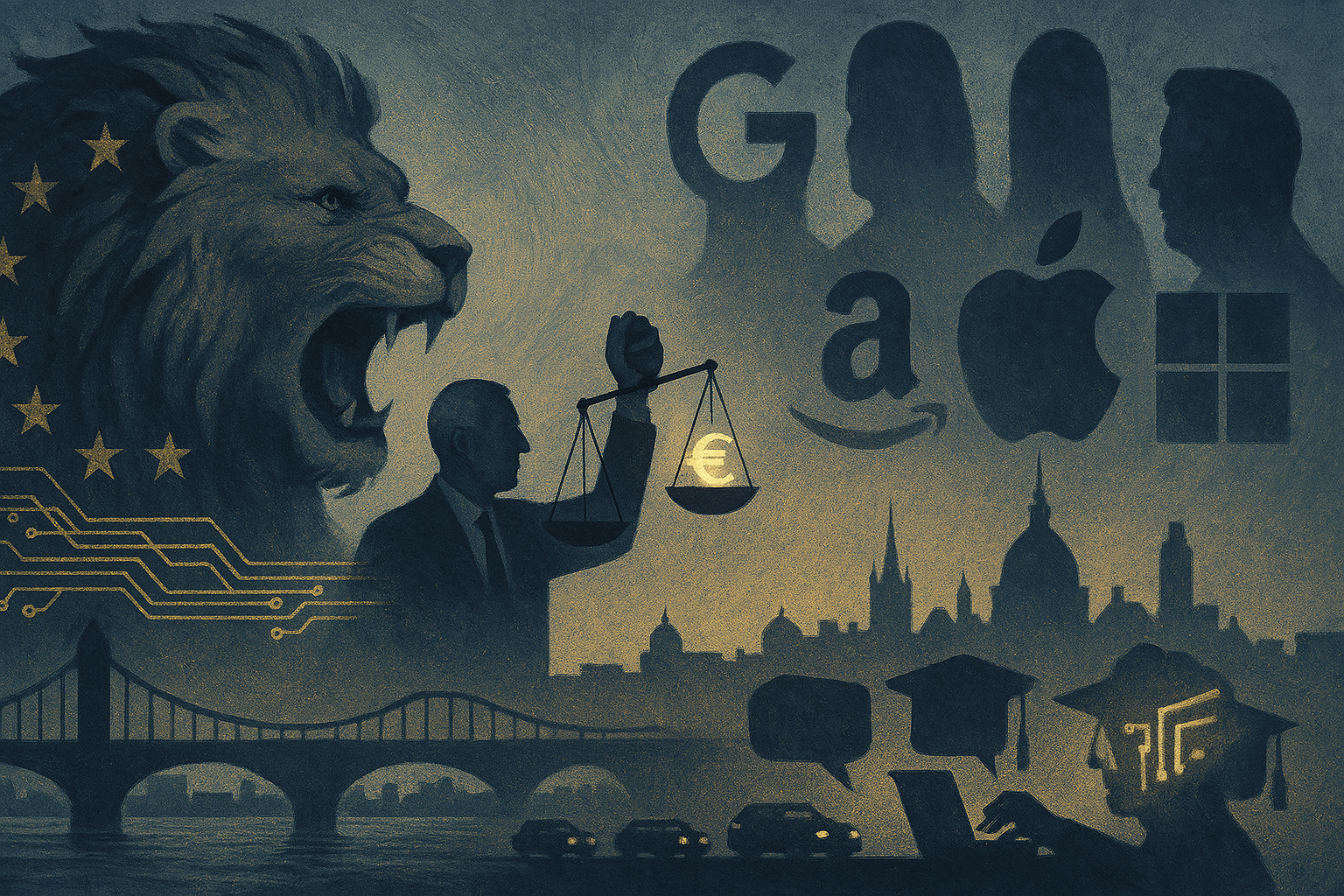
Silicon Valley just learned a painful lesson in European politics. Cozying up to Trump might cost them their second-biggest market.
Meta, Google, and OpenAI raced to court the new president. Zuckerberg and Bezos made their Mar-a-Lago pilgrimages. Musk became Trump's tech whisperer. They hoped for deregulation and protection from Chinese rivals.
Europe watched in horror. Now it's plotting revenge. France wants to target U.S. tech services in response to Trump's tariffs. Other EU nations eye similar moves.
The stakes are massive. Google alone pulls $100 billion from Europe. But Europeans increasingly see U.S. tech as a security threat. Musk's Starlink games in Ukraine didn't help.
EU courts could deliver the knockout punch. Privacy advocates stand ready to challenge U.S. data transfers. Trump's disdain for EU privacy rules gives them ammunition. No judge will trust promises from an administration that treats laws like suggestions.
European tech leaders smell blood. They're building rival clouds and platforms. China circles too, eyeing the vacuum.
U.S. tech giants painted themselves into this corner. They traded European trust for Trump's favor. Now they might lose both markets.
Why this matters:
Read on, my dear:

Sudowrite transforms the lonely writing process into a collaborative dance between human creativity and AI assistance. Founded by writer-entrepreneurs, it's carving a unique niche as the premier AI writing partner for fiction creators.
THE FOUNDERS: Amit Gupta and James Yu launched Sudowrite in 2020 in San Francisco. These writer-engineers (Gupta sold Photojojo in 2014; Yu sold Parse to Facebook in 2013) created the tool after meeting in a sci-fi writing group to combat their own creative blocks. Now employs under 20 people.
Fuel your morning with AI insights. Lands in your inbox 6 a.m. PST daily. Grab it free now! 🚀